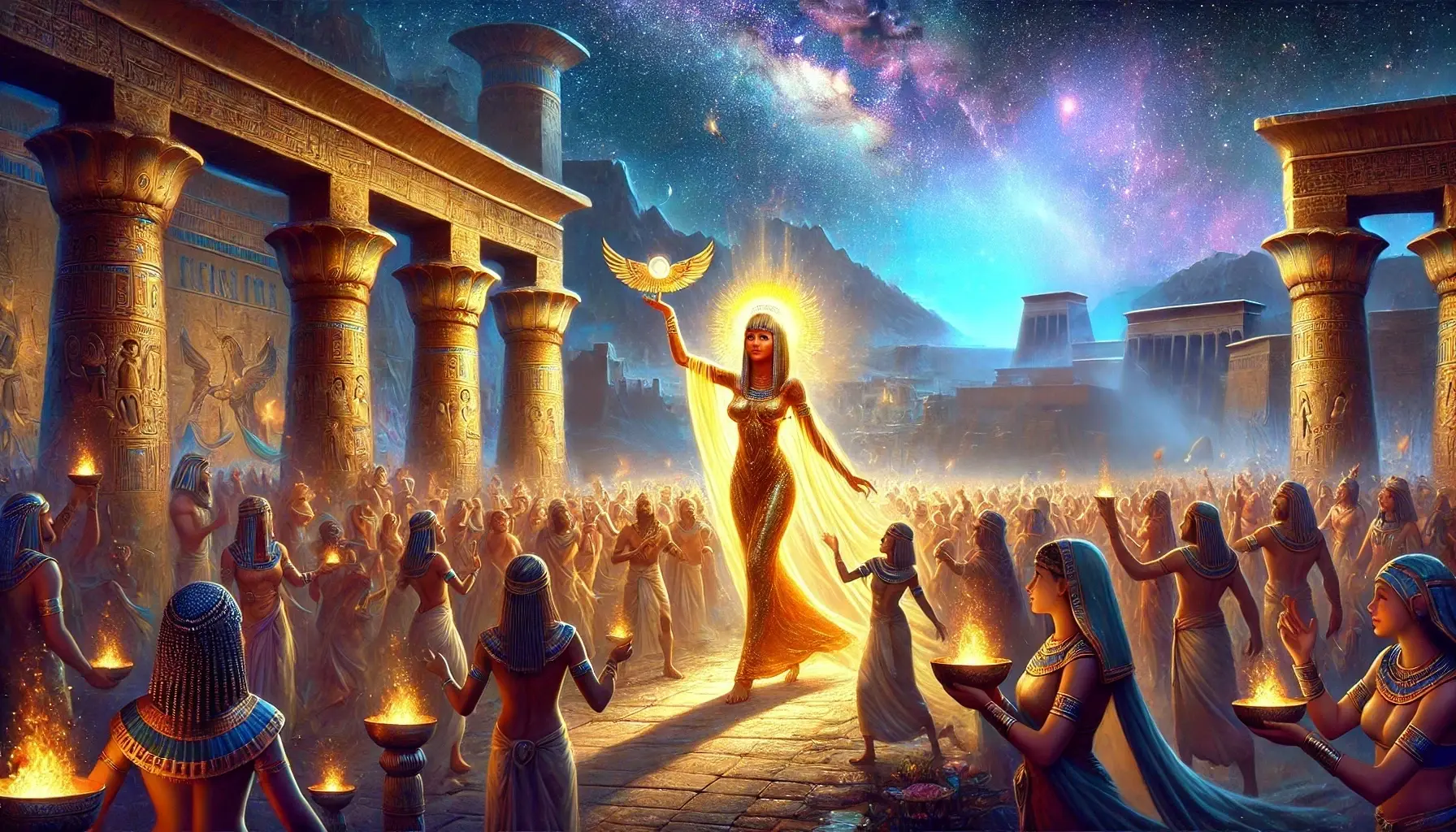The Loom of the World
Long before the first mortal drew breath, when the heavens were raw and the earth unshaped, the Three Sisters of Fate stood at the edge of existence, their task already eternal. They dwelled in a shadowy grotto where time itself seeped from the walls, pooling in their loom like silvered thread. Clotho, the youngest, spun the thread of life with fingers deft as a bird’s wing. Lachesis, calm and unyielding, measured it against a staff of celestial gold. Atropos, the eldest, severed the thread with a blade forged from the first star’s death.
These sisters were neither cruel nor kind but inevitable, their work as natural as the tides or the seasons. Each thread they wove shimmered with the essence of a life, vibrant with potential, marred by flaws, and imbued with the mystery of the unknown. Though their hands shaped destiny, their hearts remained untouched by love or hate, for they were bound by duty older than the gods themselves.
The Council of the Gods
In an age when Olympus still stood golden and proud, Zeus summoned the Three Sisters to his high throne. The gods had grown uneasy with their omnipotence constrained by the mortal lives spun, measured, and cut without heed to divine will. Zeus, with his thunderbolt gripped tight, addressed the sisters.
“Clotho, Lachesis, Atropos,” he began, his voice rumbling like an oncoming storm, “must the Fates answer to no one? Even we Olympians are powerless before your loom. Should not the gods wield some measure of authority over the mortal weave?”
Clotho tilted her head, her eyes wide as the dawn, and replied, “Mighty Zeus, you command the skies, yet storms obey no master. We do not choose; we only fulfill what is. Would you unravel the wind or tame the sea?”
Lachesis’s steady hand held the measure, unshaken by the king’s demands. “It is not our defiance but the order of all things,” she added.
Atropos, silent until then, raised her shears, gleaming like frost under the sun. “Would you wield these, Lord of Olympus? Could you sever without trembling?”
Zeus faltered, his storm quelled by their calm. The sisters departed, their purpose unchallenged, leaving the gods to brood in the shadow of their unyielding craft.
The Mortal Threads
Among mortals, the Fates were both feared and revered. Farmers left offerings at their shrines, weaving stalks of grain into symbols of life’s fragility. Poets sang of the Sisters’ impartiality, while warriors prayed for threads unbroken before battle. Yet, no mortal truly knew when their thread would be cut, and therein lay both terror and grace.
One such thread belonged to Anthea, a shepherdess with hair like wild thyme and eyes the color of storm-lit seas. Her life was simple but rich with small joys—the bleat of lambs, the scent of crushed lavender beneath her feet, and the quiet love she bore for Lysander, a traveling bard.
Unbeknownst to Anthea, Lachesis had measured her thread shorter than most. Clotho’s spinning had been quick, her hands trembling with the strange urgency that sometimes gripped the loom. When Atropos raised her shears, she paused, sensing an unusual weight in the thread—a destiny unfulfilled, a harmony unplayed. But the Sisters did not question their task. The thread was cut.
The Broken Song
Lysander arrived in Anthea’s village days too late, his lyre strapped to his back, its strings unplucked since her death. The villagers spoke of a sudden illness that took her, swift as a falcon’s dive. Grief-stricken, Lysander wandered to the hills where Anthea had tended her flock. There, amid the lavender and thyme, he played a song so haunting that even the wind seemed to weep.
The song drifted far, curling like smoke through the grotto of the Fates. Clotho paused her spinning, her fingers trembling as the melody touched her heart. Lachesis set down her measure, her gaze distant. Even Atropos hesitated, her shears hovering above another thread.
“He mourns her,” Clotho whispered.
“He defies us with his song,” Lachesis replied, though there was no anger in her voice.
Atropos’s eyes, sharp as her blade, softened. “He does not seek to change fate. He only grieves what is lost.”
The Weaving Unraveled
Moved by Lysander’s lament, the sisters descended from their grotto for the first time in millennia. They found him atop the hill, his lyre’s strings quivering with the last notes of his song. The mortal did not flinch at their otherworldly presence, his grief too deep for fear.
“Why do you sing?” Clotho asked, her voice as soft as the dawn’s first light.
Lysander met her gaze. “Because she was, and now she is not. And I cannot bear the silence.”
Lachesis stepped forward, her staff gleaming. “You would defy us for love?”
“Not defy,” Lysander replied. “Only remember.”
Atropos studied him, her shears heavy in her hand. “What would you give for her thread to be spun anew?”
“Anything,” Lysander said, though his voice trembled with the weight of the word.
The sisters conferred in silence, their faces unreadable. Then Clotho spoke, her tone grave. “It is not within our power to weave what has been cut. But perhaps…”
She took a fragment of Anthea’s thread, luminous as moonlight, and wove it into Lysander’s. Lachesis measured the new weave, her expression inscrutable. Atropos lowered her shears, leaving the thread unsevered.
The Eternal Song
Lysander’s grief lifted, though it never vanished entirely. He roamed the world, his songs carrying whispers of Anthea’s spirit. Those who heard his music spoke of a warmth like sunlight on winter mornings, a reminder that even in loss, beauty endures. The Fates watched from their grotto, their task unchanged but their hearts no longer untouched.
One day, as Lysander played his lyre beneath a great oak, a child approached. Her hair was the color of wild thyme, her eyes storm-lit. She listened, entranced, before saying, “Your song feels like home.”
Lysander’s fingers faltered on the strings, his heart pounding with a nameless recognition. He smiled, though tears blurred his vision, and began to play again.
Far away, in the grotto of the Fates, Atropos’s shears gleamed in the dim light, untouched. The sisters resumed their work, but the threads they wove shimmered with a new softness, as if imbued with the melody of a broken song made whole.
And so, as the loom turned and the threads flowed, the Fates wove not just lives but echoes of love and loss, of grief and memory, into the vast tapestry of existence. Above it all, Lysander’s song lingered like a half-forgotten dream, a reminder that even the hands of destiny can falter, if only for a moment.



